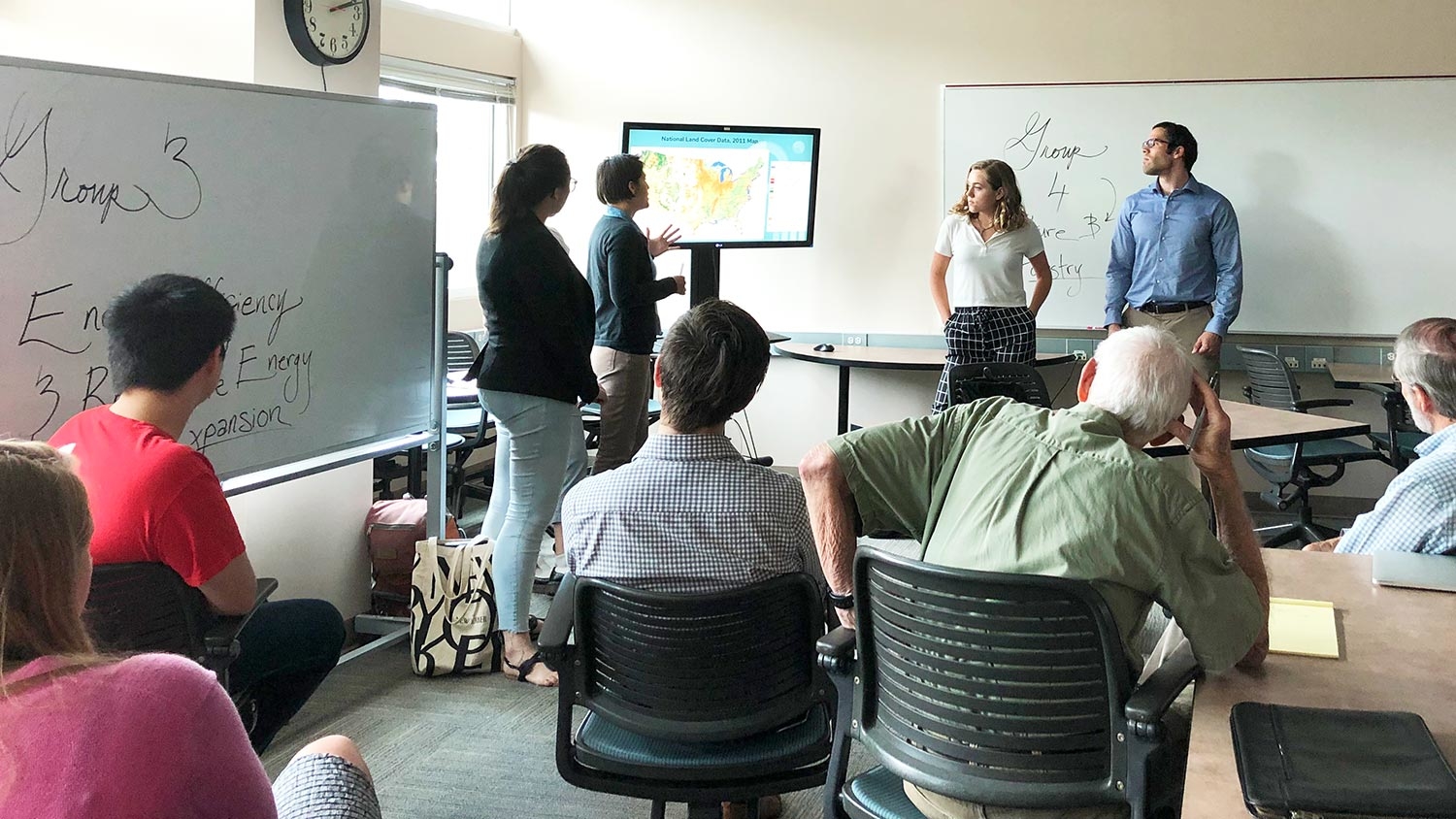Creating a Climate Roadmap for Chatham County

Chatham County wants to mitigate climate impact, and it turned to NC State students for a roadmap.
During the spring 2019 semester, Environmental Sciences students worked with the Chatham County Climate Change Advisory Committee to develop recommendations for reducing emissions and adverse impacts of climate change.
The course, called Environmental Sciences 400: Analysis of Environmental Issues, is the capstone course for students majoring in environmental sciences. Students work on real-world projects that impact campus or community. As a result, students gain valuable experience for their future environmental careers.
“This was the first real-world project where we led ourselves. We were responsible for the end product,” said student Dymond Generette. “Being the project manager of the group was great experience creating reports, planning meetings, creating our own deadlines, networking and having the opportunity to create [recommendations].”
After a semester of research and analysis, students presented their findings to the county’s climate committee. Recommendations ranged from educational workshops about the cost savings of residential solar projects to installing rain gardens for improved wetland management in the county. Other ideas included citizen science projects that educate about climate mitigation, land management efforts to reduce carbon sequestration loss associated with urbanization and strategies to reduce commute time for residents.
“Most emissions in the county are in transportation due to higher-than-average commute times … of residents [who] leave the county to go to work every day,” said Andrew Henderson, who worked in a group focused on transportation.
Henderson’s group recommended the county consider adding electric vehicle charging stations, boosting rural internet access to enable telecommuting and educating about the benefits of purchasing hybrid or electric vehicles.
“We think it’s great that we have students taking a fresh look at our county and taking an interest [in our work],” said Mike Petruska, chairperson of the county’s climate committee. “We definitely welcome new ideas. A lot of us have been part of this work for many years, so it’s good to get new thinking.”
- Categories: